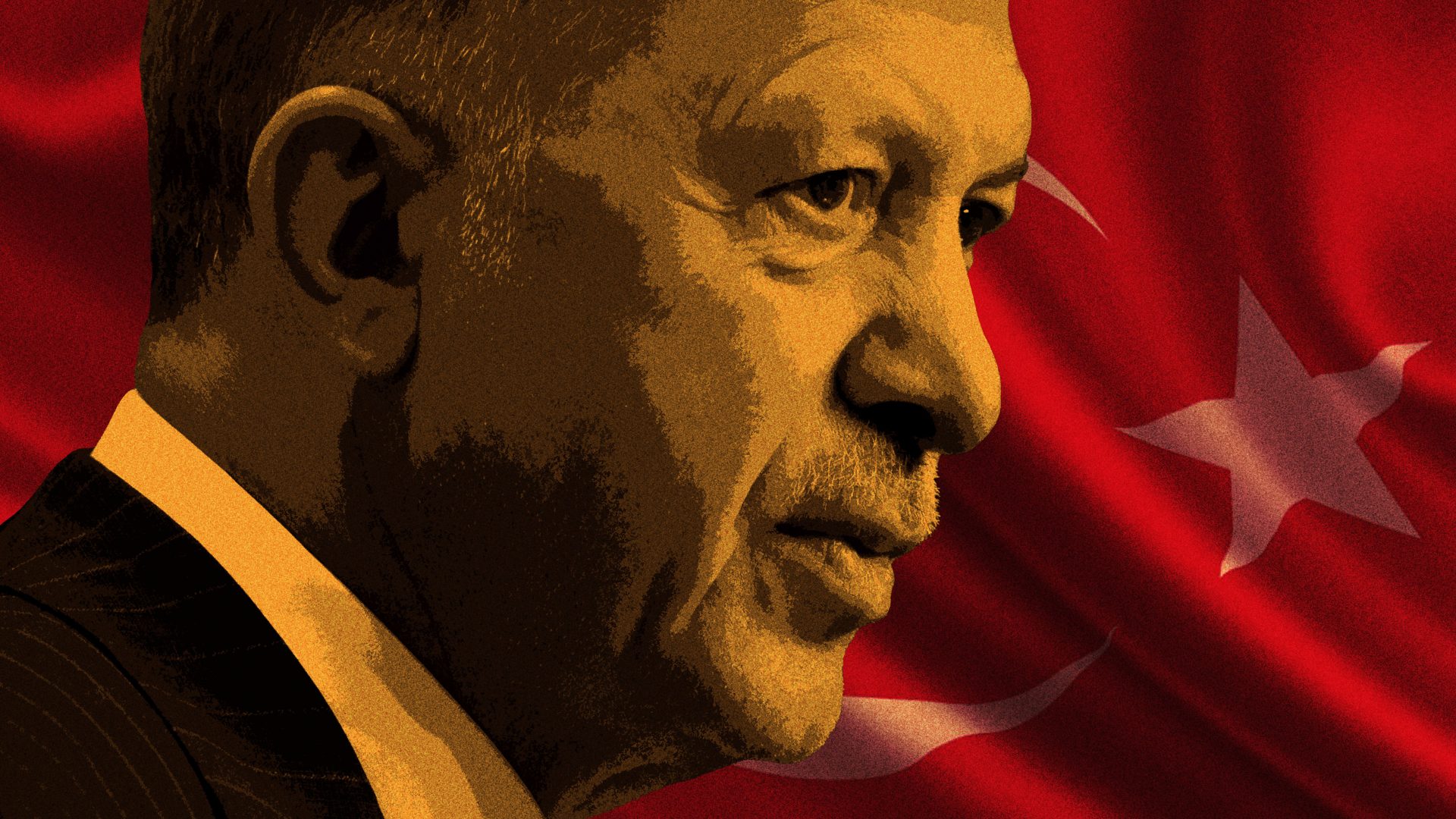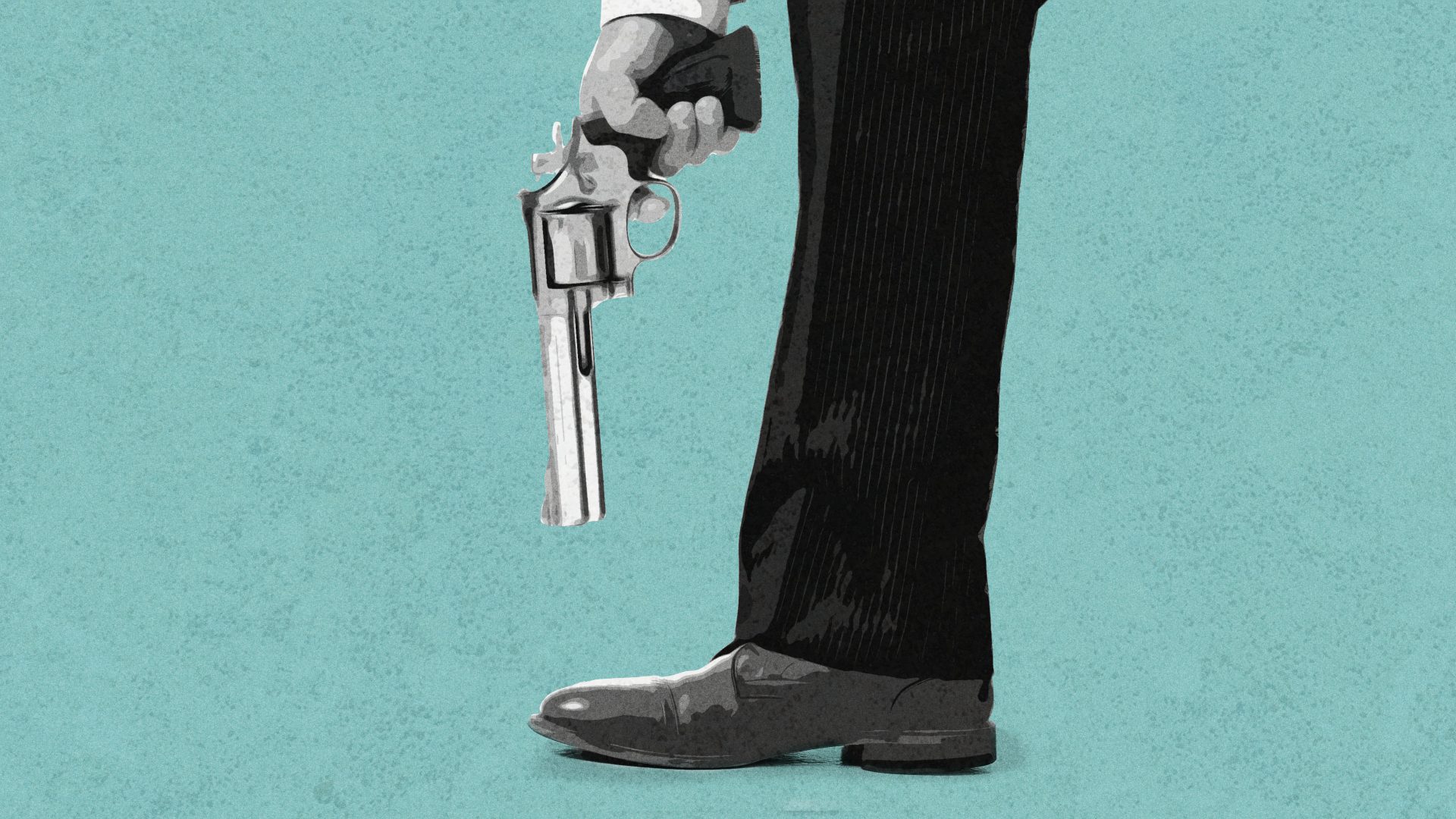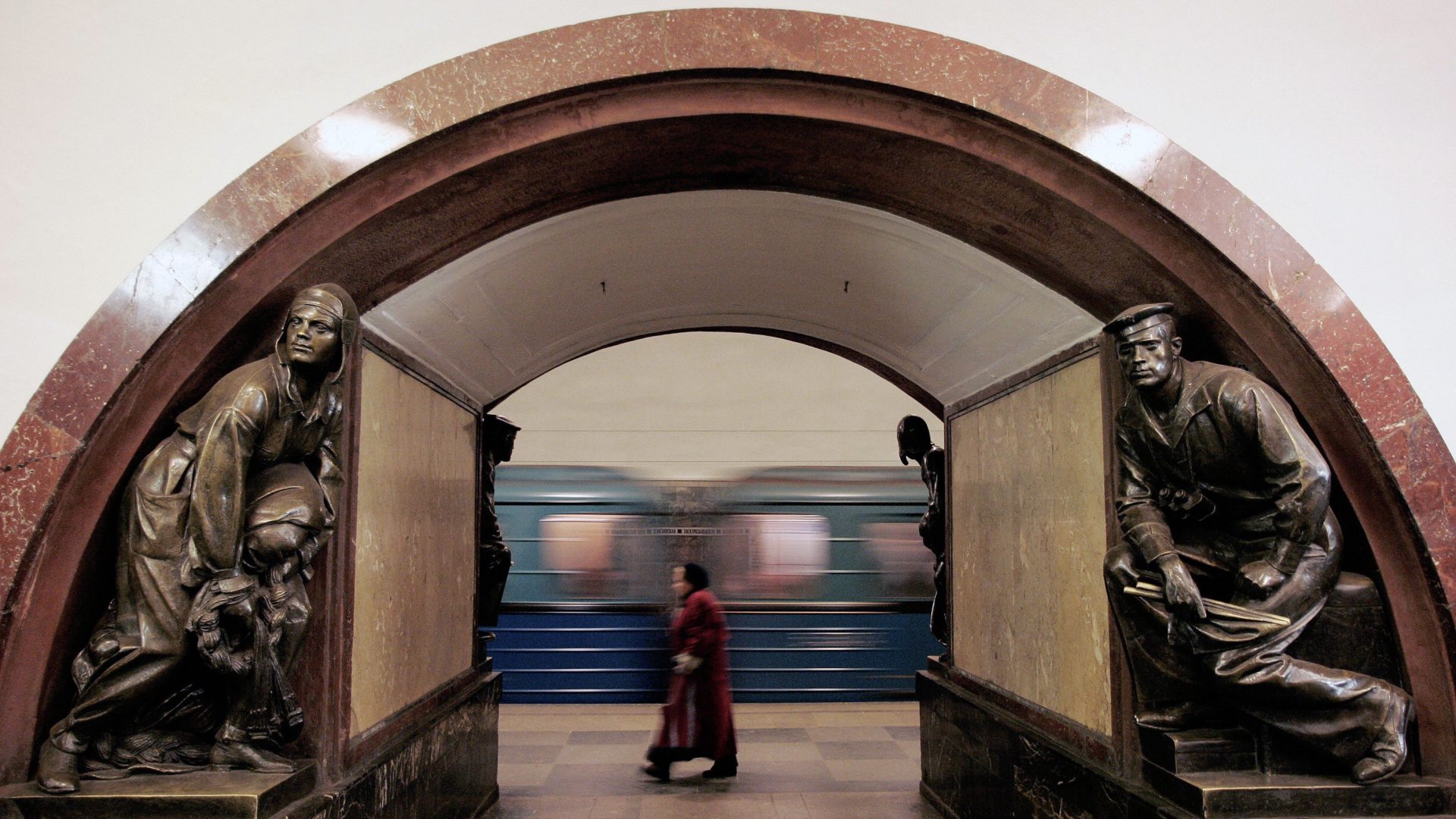As a desperate Recep Tayyip Erdoğan faces the most serious electoral challenge of his 20 years in power, he is ready to cling to any raft that will save him. What else can explain his decision to go into the May 14 polls accompanied not just by his sclerotic, ailing nationalist coalition partners, but another small party with links to Islamist violence and a radical anti-woman agenda which will alienate the conservative women voters on whom Erdoğan has always depended?
Facing a surprisingly united opposition, his Justice and Development Party (AKP) is neck-and-neck with presidential challenger Kemal Kılıçdaroğlu’s Republican People’s Party (CHP). On top of this Erdoğan has been unwell, falling ill during a live television broadcast and cancelling some campaign events he had added in a bid to fight back.
“This is the first election where they go in facing a significant challenge,” explains Wolfango Piccoli, co-president of Teneo Intelligence, a consulting firm that makes assessments of political risk. “The outcome is still open, 10-15% are still undecided. The opposition has a chance of winning, of course they do.”
In some polls, Kılıçdaroğlu’s CHP – originally created by Atatürk, Turkey’s secularist founding father – has even pulled ahead. Aligned with him in the six-party alliance aren’t just the usual suspects, but also a former Erdoğan prime minister and a former economy and finance minister. They’re all united with the sole aim of removing Erdoğan, whose unsteady stewardship of the economy and chaotic response to two deadly earthquakes this year make him beatable.
Erdoğan has also been snubbed by the former deputy PM and senior international banker Mehmet Şimşek, whom he reportedly wanted to lure back to run the economy. Living standards are falling and ideological policies, including the counterintuitive belief that high interest rates cause high inflation, have accelerated that decline. Last year, inflation reached 85%. The earthquake-related fallout has harmed the economy even more.
Erdoğan carried off the opposite of a PR coup when his People’s Alliance secured the support of the conservative Islamist New Welfare Party, founded by the son of an Islamist prime minister who was hounded from office 25 years ago. He also did a deal with the right wing, Kurdish Islamist HÜDA Par, a party with roots in Turkey’s Kurdish Hizbullah, known in the 1990s for its association with abduction, torture and murder. These tiny groups could cause Erdogan’s nationalist allies to walk away from him. But with Turkey’s estimated 14 million Kurds expected to play kingmaker in the elections, he clearly felt the need to woo some of them.
Yet HÜDA Par seems intent on helping the opposition, announcing demands to criminalise adultery, scrap laws punishing violence against women and abandon rules that make mixed-sex education compulsory.
That’s unfortunate for Erdoğan. Traditionally, the activism of conservative women, with their doorstepping, recruitment drives and campaigning tea parties, has been vital to AKP’s success.
Now, a poll has found that nearly a third of women who voted for the AKP in 2018 were unlikely to do so again. Attitudes crystallised around a popular TV character, the young, educated, sharp-tongued headscarf-wearing Nursema, whose career ambitions are dashed when her conservative family marries her off to a violent man who rapes her. “How would Nursema vote?” became the question for articles and panel discussions (answer: probably not AKP). State television replaced the show with a documentary.
Nursema is similar to women I met in the early days of Erdoğan’s then-progressive government. These included Zeynep, a twenty-something software engineer who enthused about jazz, Audrey Hepburn, Tolstoy and Formula One as we chatted in a waterside Istanbul cafe. The daughters of a new class of devout Muslims, they sported chic hijab and intellectual interests previously curtailed by secularist, politically driven restrictions.
If Erdoğan loses people like Zeynep, he’s in trouble. And she certainly won’t like his misogynistic allies. Conversely, under Kılıçdaroğlu, the CHP has pulled its support for hijab restrictions.
Erdoğan loves to read the polls. Maybe this is why his public appearances have been dreary and belligerent. One that sticks unpleasantly in the mind is a video of him walking grimly through crowds during Ramadan, his taut expression almost Trumpian, mechanically handing out money. “For the children, for the children,” he insisted to observers accusing him of bribery.
Turks are hardly strangers to such enticement. Every election, somebody gets a bung. Erdoğan didn’t disappoint, raising the minimum pension to £310 a month, and making it easier to retire early, especially for married women and small businessmen.
This time, the baubles are also designed to instil national pride. Turkey’s first domestic electric car and first amphibious assault ship, natural gas recently discovered in the Black Sea, a new Istanbul Financial Centre and a new nuclear power plant. The message is: “Only I can rebuild our country.”
“You have to be from outer space to believe he will do now what he failed to do in the last 20 years,” says the columnist Mehmet Y Yılmaz, who adds that Erdoğan has squandered billions of dollars for unwanted infrastructure instead of supporting farmers and reducing the rocketing price of food.
While Erdoğan struggles, Kılıçdaroğlu is decidedly cheery. Campaigning on a cold, wet April day near Gallipoli, he promised the crowd a “brand new spring”. Posters across the town showed his image, emblazoned with the slogan: “I’m Kemal. I’m coming” – a tongue-in-cheek reference to an old Turkish gangster movie.
In reality, the diminutive Kılıçdaroğlu is anything but gangsterish, but rather a softly spoken, bespectacled, 74-year-old former bureaucrat. His opponents call him “Gandhi Kemal” on account of his appearance and conciliatory style. He has also been criticised for his caution, lack of energy, and failure to dent Erdoğan’s popularity after more than a decade as opposition leader.
But before even one vote is cast, Kılıçdaroğlu has performed a miracle. By forming and sustaining the multi-party Nation Alliance, he united Turkey’s fractious opposition, the so-called Table of Six, which includes social democrats, nationalists and Islamists.
He did so despite a wobble last month, when his main partner, nationalist former interior minister Meral Akşener, stormed out. She hadn’t wanted Kılıçdaroğlu as the opposition candidate, and would have preferred either the mayor of Istanbul or Ankara, both of whom were polling higher.
But the mayors lured her back. Istanbul’s ambitious Ekrem İmamoğlu, was in any case disqualified from running after being sentenced to jail for insulting election officials, in a transparent effort by Erdoğan to get him out of the way.
Akşener even stayed put after Kılıçdaroğlu visited Turkey’s largest pro-Kurdish People’s Democracy Party (HDP), even though her nationalist instincts make her bitterly opposed to political movements seeking minority Kurdish rights. She remained silent after Kılıçdaroğlu released a bold video criticising Erdoğan’s politically motivated anti-Kurdish discrimination, and another discussing his identity as an Alevi, a distinct Muslim faith group that Sunni Islamists attack as “heretics”.
This was all crucial in persuading the HDP to refrain from fielding its own presidential candidate, giving Kılıçdaroğlu an advantage over Erdoğan. The alliance has pledged to release both HDP leader Selahattin Demirtas and philanthropist Osman Kavala from prison if they win.
Kılıçdaroğlu’s own people are more confident than any of Erdoğan’s previous opponents. When I asked an aide what they will do if they win, he corrected me: “When we win”, before rhapsodising about a democratic post-Erdoğan world. “The Erdoğan regime is exhausted, and it is costing Turkey dearly,” Cihan Aydin, an advisor to Kılıçdaroğlu, told me. “There is a serious economic crisis. The rule of law has been lost. There are serious levels of inequality everywhere. People are seeing that the opposition alliance is the only way to rebuild democracy.”
What’s also notable is the increase in political humour. Ali Babacan, leader of the DEVA Party, and who served in Erdoğan’s cabinet, mocked Erdoğan’s slogan “the right man at the right time” by quoting a hit by pop star Tarkan, who tells an unsuitable lover: “The wrong time, the wrong person, a false spring…”
But is this hope misplaced? Regardless of polls, many think Erdoğan will pull through. He remains popular among the “left behind”, cements his reputation through his client media and has silenced many opposition voices with imprisonment, threats or forced exile.
Kılıçdaroğlu doesn’t always enthuse the young, some of whom still favour CHP defector Muharrem Ince. Although he may only get 5% of the vote, Ince could force a second round. This would be dangerous, giving Erdoğan space to step up pressure for victory by any means. He has previously rerun elections whose results he disliked.
If Erdoğan wins, he is likely to be conciliatory – at least in foreign policy. He’ll likely withdraw his veto on Sweden’s Nato membership and try to mend fences with Syria, Egypt and Israel, as well as the US. Domestically, he’ll focus on cementing his power.
If he loses, don’t expect the rose-tinted image painted by opposition media. The pre-Erdoğan 1990s included economic crises, nationalist posturing (including a near-war with Greece over an uninhabited islet), military-dominated politics, discrimination against women and minorities, “mystery” murders of opponents and organised criminals in cahoots with politicians and security forces. Many of the economic and social gains Erdoğan has erased were those he instigated in the first place.
The task for any victorious opposition is monumental. Even their flagship pledge, to restore the prime minister-led parliamentary system, is dependent on a big majority they may not win. From the judiciary to the treasury and the central bank, Erdoğan has stuffed institutions full of cronies.
On foreign policy, the opposition has promised to restore power and status to the foreign ministry, sidelined by Erdoğan’s diplomatic freelancing. They want to support efforts to restart EU membership talks, though Turkey has lost ground, and the EU has moved away both from enlargement and from Turkey. On Ukraine, the balancing act between Ukraine and Russia will continue, as Turkey’s economy depends on both, but without Erdoğan’s Putin-hugging.
Yet what’s most important now is the collapsing economy, and analysts are surprised the opposition hasn’t managed to exploit this more. “The economy, the cost of living, is the number one concern of voters. They’re rational. They vote with their wallets,” Piccoli says. If they don’t desert Erdoğan even amid public outcries at the astronomical price of onions, it will be because the opposition hasn’t convinced them they’ll be any better.
“On the economy, they need a clear-cut plan. They need to explain their priorities for the first 100 days. They say they want to return to orthodox monetary policy — I’m not sure the average Turk understands that implication,” Piccoli adds. This would involve unpopular decisions, including a sharp interest rate hike to around 30% to combat inflation.
International investment could plug some gaps, and a victorious opposition needs bold policies to attract it. If they’re timid, or succumb to infighting after ousting the only thing that unites them – Erdoğan – then they will fail. And it will all have been for nothing.




